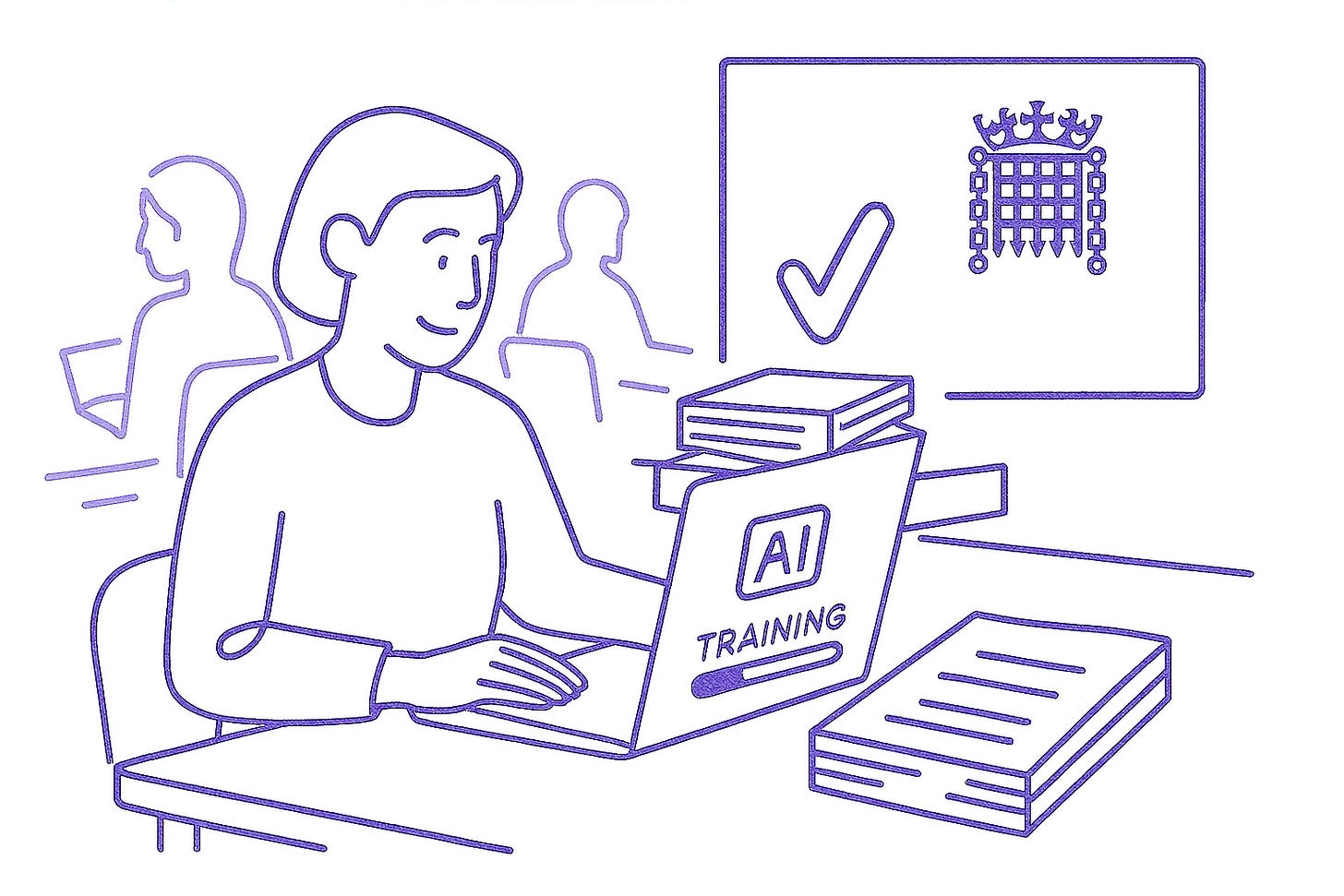Free DfE AI Training, Detector Doubts & Divergent US Policies
AI education news for week 29 in 2025.
Good morning. This week saw the move from simple “AI awareness” to concrete “AI enablement”. In England, the Department for Education rolled out free, national AI-training materials for every school and college. Meanwhile several UK universities were forced to overturn plagiarism penalties when the sector ombudsman ruled that AI-detector scores alone are not reliable evidence. Across the Atlantic, more than half of US states have now issued their own K-12 AI guidance, signalling a patchwork approach in the absence of federal rules.
In This Week’s News
Department for Education launches free, national training on AI for all staff in English schools and colleges.
Students win plagiarism appeals after ombudsman warns against over-reliance on AI-detector scores.
28 US states now publish K-12 AI guidance; approaches vary widely.
New report shows widening AI skills gap between private- and state-sector teachers.
Survey finds younger educators far more optimistic about classroom AI than older colleagues.
Top Stories
England offers free AI training for every teacher
The Department for Education has released an online “AI in Teaching” toolkit, developed with the Chiltern Learning Trust and the Chartered College of Teaching. It includes slide decks, classroom examples and a mandatory safety module and is free to every member of staff in schools and colleges across England. Ministers say the aim is to raise confidence so that teachers can use AI responsibly to cut planning and admin time.
Why it matters — A free, centrally-endorsed course creates a common baseline of trusted practice, reducing the risk that only well-resourced schools can train their staff. It also signals that government policy is moving from “wait and see” to active enablement.
Source: City AM
Plagiarism appeals succeed after AI detection challenged
The Office of the Independent Adjudicator upheld six student complaints where universities had relied heavily on AI-detector scores to allege misconduct. The ombudsman warned institutions to understand the “limitations, potential bias and error rates” of current tools and to seek additional evidence before ruling against students.
Why it matters — Academic integrity policies cannot be outsourced to software. Institutions will need to adopt a more nuanced, evidence-based approach, especially to avoid disadvantaging international or neuro-diverse students.
Source: librarylearningspace.com
28 US states now have K-12 AI guidance
A Stateline analysis found that more than half of US states, plus the District of Columbia, have issued frameworks on classroom use, data privacy and assessment. Approaches range from permissive innovation policies in Texas to stricter integrity rules in New York.
Why it matters — District leaders and ed-tech providers now face a fragmented regulatory map. Multi-state institutions and online programmes must track and reconcile differing rules on transparency, safeguarding and acceptable use.
Source: Stateline
AI Education News in Brief
Private/state AI skills gap widens — A Sutton Trust report shows 45 % of private-school teachers have received formal AI training, compared with 21 % in state schools, fuelling a growing divide. Source: Cybernews
Students uneasy with classroom AI — A US study reports that many undergraduates feel “anxious, confused and distrustful” of AI use by peers and faculty. Source: University Business
Chatbots change teaching practice — A Financial Times feature profiles universities that now require students to submit AI prompts with coursework, while others revert to handwritten exams. Source: Financial Times
Younger staff more positive — A D2L survey of 1,200 US educators finds those under 35 are twice as likely to embrace AI tools as their Gen X colleagues. Source: D2L
AI Studies Released This Week
Generative-AI interaction quality linked to learning gains — A Scientific Reports paper involving 323 university students found that better AI interaction and output quality boosted motivation and small but measurable improvements in project outcomes. Source: Nature
In Other AI News
EU finalises voluntary Code of Practice for general-purpose AI — Microsoft signalled it would sign; Meta declined, citing legal uncertainties. Source: Reuters
UK Compute Roadmap sets £2 bn plan for national AI infrastructure — The strategy calls for 6 GW of AI-ready data-centre capacity by 2030 and £59 m for skills. Source: GOV.UK
Tech leaders split on white-collar job losses — Anthropic’s Dario Amodei warned half of entry-level roles could vanish within five years, while others, including OpenAI’s Sam Altman, remain more optimistic. Source: [Business Insider] Business Insider


